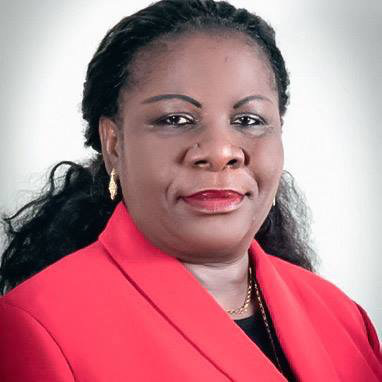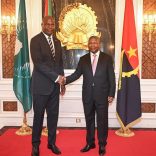Mozambique: Banks' mandatory reserves fall 4.3% in May
Luisa Diogo says Mozambique deserves differential treatment by lenders

File photo / Luisa Diogo, former Mozambican prime minister and minister of finance
Former prime minister of Mozambique Luisa Diogo argues that trust between the country and international partners “implies differential treatment when there are missteps,” referring to the debt of US$1.4 billion dollars not disclosed by the government.
“Trust implies differential treatment when there are missteps, and involves giving the necessary support and having confidence in the work we are doing,” said Diogo, who is in Portugal for the ‘Portugal-Mozambique, Bridges for Economic Development’ conference held in Cascais on Tuesday.
“Mozambique has shown for years to have a record of being an earnest country, in compliance with internationally accepted rules, and has also proved to be a great example at regional and international level”, the former finance minister and prime minister asserted.
In response, the EU ambassador in Mozambique, Sven von Burgsdorff, who also chairs the G14 international donor group, countered Diogo’s request for an exception to be made by noting that international markets “do not have the patience or time to wait for the restoration of trust”.
“Markets do not like insecurity nor uncertainty,” said Sven von Burgsdorff, adding that “the current situation is very important and it is up to the government to take swift decisions so that confidence is restored in international markets, which vote every day with the availability of their money.”
For the German-born, Maputo-domiciled EU representative, who heads of the group of international donors which suspended financial aid to Mozambique following the disclosure of hidden debts of more than US$1.4 billion, the creation of favourable conditions for the business environment will be critical.
“The business environment will be very important to Portuguese, Mozambican, Chinese or any other entrepreneur needing to feel well-treated in order to invest and create jobs [in Mozambique],” the diplomat stressed.
According von Burgsdorff, “In the long term, [Mozambique] has a great future, but in the short and medium term some measures have to be taken. Better-coordinated action at ministerial level could facilitate this”.
The International Monetary Fund (IMF) said at the end of its visit to Mozambique on Friday that the government must implement an urgent and decisive package of measures to prevent further deterioration of the economy and warned that the country may have reached a risk high of debt distress.
“The mission and the authorities agreed that this context calls for an urgent and decisive package of policy measures to avoid a further deterioration in economic performance,” the Fund said at the end of the visit of a technical team to assess the economic situation resulting from the discovery of large debts contracted by the Mozambican government outside public accounts.
In particular, the IMF specified, “substantial fiscal and monetary tightening, as well as exchange rate flexibility, are needed to restore macroeconomic sustainability, reduce pressures on inflation and the balance of payments, and help alleviate pressures on the foreign exchange market while restoring balance between supply and demand on the foreign exchange market”.












Leave a Reply
Be the First to Comment!
You must be logged in to post a comment.
You must be logged in to post a comment.